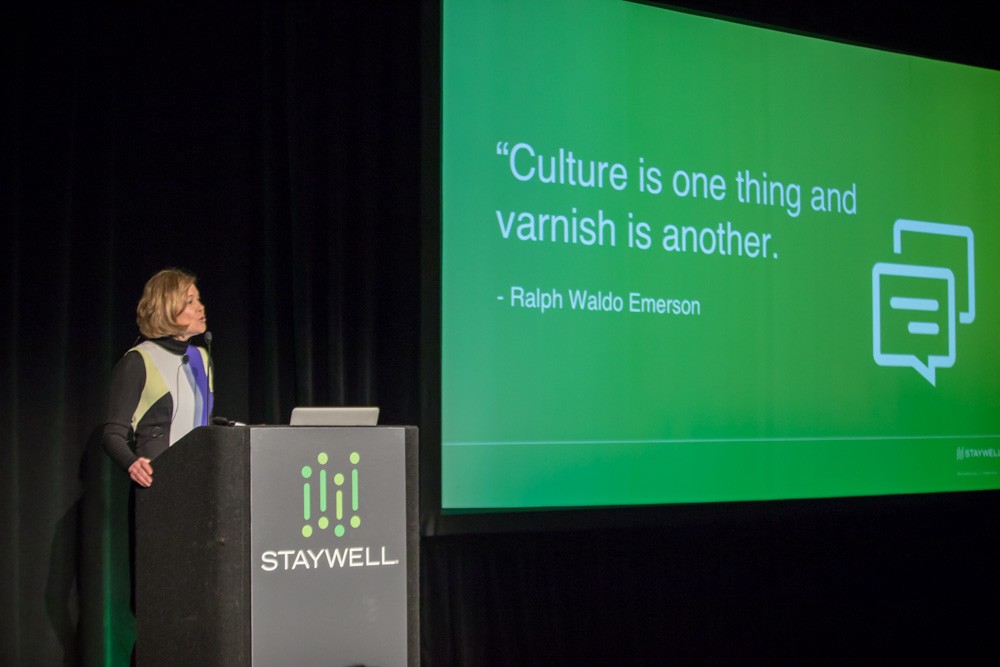At Bonova Advisory we interview experts on various topics for leadership, banking and finance. This week, I had the pleasure of interviewing Nicole Latimer, CEO of StayWell, A Merck & Co Subsidiary.
Nicole’s background includes population health management, health system growth strategies, and patient and employee education. She has a deep understanding of today’s most pressing health care trends. Before coming to StayWell in 2016, Nicole was Senior Vice President at The Advisory Board Company.
Thank you so much for doing this with us! What is your “backstory”?
My 25 years in the health care industry has heavily focused on health systems and the operations/strategy arenas to improve the overall quality of care. In watching the transition of the health care industry over the last several years, I realized that I wanted to have a greater, more hands-on impact on the industry
Joining StayWell in 2016, I had greater access to the patient side of the business, which enabled me to focus on individual accountability for health. I found that just as physicians are struggling to help patients take accountability for their health behaviors, patients are also struggling from a knowledge and motivation standpoint regarding how they can improve their own health. At StayWell, we’re aiming to fix these problems on both sides.
Based on your personal experience, what are the “5 Things You Need To Know To Successfully Manage a Team”. (Please share a story or example for each, Ideally an example from your experience)
- 1. Have a good knowledge of team progression. I always like to think about the concept of teams going from forming, to storming, to norming, to performing. There will always be ‘storming’ as a natural, inevitable evolution of teams. But you have to manage this conflict and create new processes and workflows to eventually get to performing. For example, we recently shaped a new executive team at StayWell to bring new ideas, skill sets and experiences to the table. That was our ‘forming’ stage. As we worked through how we were going to further innovate and master what we do well, we ran into some conflict of ideas, due to the different experiences and skill sets of the members of our new team. Hint: ‘storming.’ However, by working together as a team and gaining a better understanding of how each individual works best, we found ourselves naturally ‘norming’ and ‘performing,’ which made us capable of successfully working through a new acquisition in just 41 days.
- 2. Utilize personality tests to identify teams’ strengths. Leaders must understand what their people are good at and what are their skills and capabilities. We recently utilized our internal personality test to restructure our IT/engineering and product teams and found we have several teammates with the same skill sets working together. By adding in teammates with different skill sets and backgrounds, we have been able to form a more well-rounded team.
- 3. Enforce the concept of process improvement. Teams must understand the roles and responsibilities of one another so when and if issues arise, managers can diagnose and redefine roles to optimize output of specific processes. At StayWell, we enforce the concept of process improvement internally, but also externally, in the work we do with our clients. For example, our team recently had an opportunity to provide more data about the use of our Consumer Health Library program among our clients. This required us to think differently about our processes, as we didn’t want to just share our data, but rather share ideas and best practices on how clients can improve outcomes from our programs. We ended up using a quality assurance method to better collect this information, and also to put in place processes that would make it easier to report on this data moving forward.
- 4. Have a good sense of humor. It’s important to remember that teams are simply just people, and each person will have their own personality and sense of humor. Good managers will complement their team’s dynamic with their own sense of lightheartedness and fun, and will also help them find and pursue their own well-being.
- 5. Be authentic and vulnerable. No one person, regardless of rank or role, has all of the answers. That’s why we have teams, so people can work together and balance out strengths and weaknesses. As leader of my company, I write frequent messages to my team about what’s going on in the business, conversations I’ve had with clients and even helpful books I’m reading for my own professional development. I do this because I want my team to understand that even I, as CEO, don’t have all the answers and am constantly learning just as much, if not more, than everyone else. I believe this level of authenticity and vulnerability with my team is well-received and helps them better understand the importance of open and honest communication.
What is the top challenge when managing global teams in different geographical locations? Can you give an example or story?
This is a big one for us at StayWell because 64% of our workforce is remote. We make sure we are staying on top of any issues that might be inhibiting our progress or productivity. A major challenge with a remote culture is that we don’t have the ability to interact in person during typical work hours, so we stress the importance of using video conferencing vs. the telephone for meetings so that our teams can interact and communicate with each other more effectively. This approach seems to be working.
What advice would you give to other CEOs or founders to help their employees to thrive?
- First, include your core values as part of the hiring process. Put these values on all job postings and also make sure you are talking about them in initial phone screenings and interviews. It’s crucial for all companies to make sure they are attracting and hiring people who are passionate about the company’s mission, as well as those core values.
- Second, I think CEOs and founders should think about the processes and technologies they can use to reinforce the behaviors or expectations they want their teams to accomplish.
Most times when people quit their jobs they actually “quit their managers”. What are your thoughts on retaining talent today?
To overcome this at StayWell, we have monthly management meetings where we all come together to have candid and transparent conversations about what’s going on across the organization and within each department. Not only do managers share their feedback, but we also arm them with talking points, helpful tips and resources about how they can best manage their teams to keep them engaged and motivated. We also go beyond the management structure to work very closely with HR to determine and pinpoint any dissatisfaction that might be taking place internally. If we identify any problems, we’ll work with that individual directly and come up with plans and solutions to ensure they can have a successful and engaging experience within our organization. We want all StayWell employees to be motivated and challenged, and to feel positively about their career path with the organization. We’ve found that a hands-on approach works well to ensure employees continue to feel challenged and like they have room for continuous growth.
You are a person of great influence. If you could inspire a movement that would bring the most amount of good to the most amount of people, what would that be? You never know what your idea can trigger. 🙂
It may seem pretty simple, but it’s important in today’s society: I would like to inspire a movement to combat loneliness that simply encourages individuals to embrace physical interaction again. Talking to strangers daily, saying hello to your neighbor or even making random visits to a friend can make a difference. I truly believe that in today’s society too many people are suffering and struggling from loneliness, and social media has played a huge role. Often people spend so much time on social media that they become less likely to interact with others personally. With a simple act, I think encouraging more physical and personal interaction would be a great movement with a lasting impact.
Can you please give us your favorite “Life Lesson Quote”? Can you share how that was relevant to you in your life?
For me it’s more of a phrase than a quote, and that’s “You gotta wanna.” Simply put, you’ve got to want to set your goals and take the actions necessary to reach them. Of course we all have days where we might fall off or steer away, but in the end if you have the “You gotta wanna” mindset, you can achieve great things.
Originally published at medium.com


